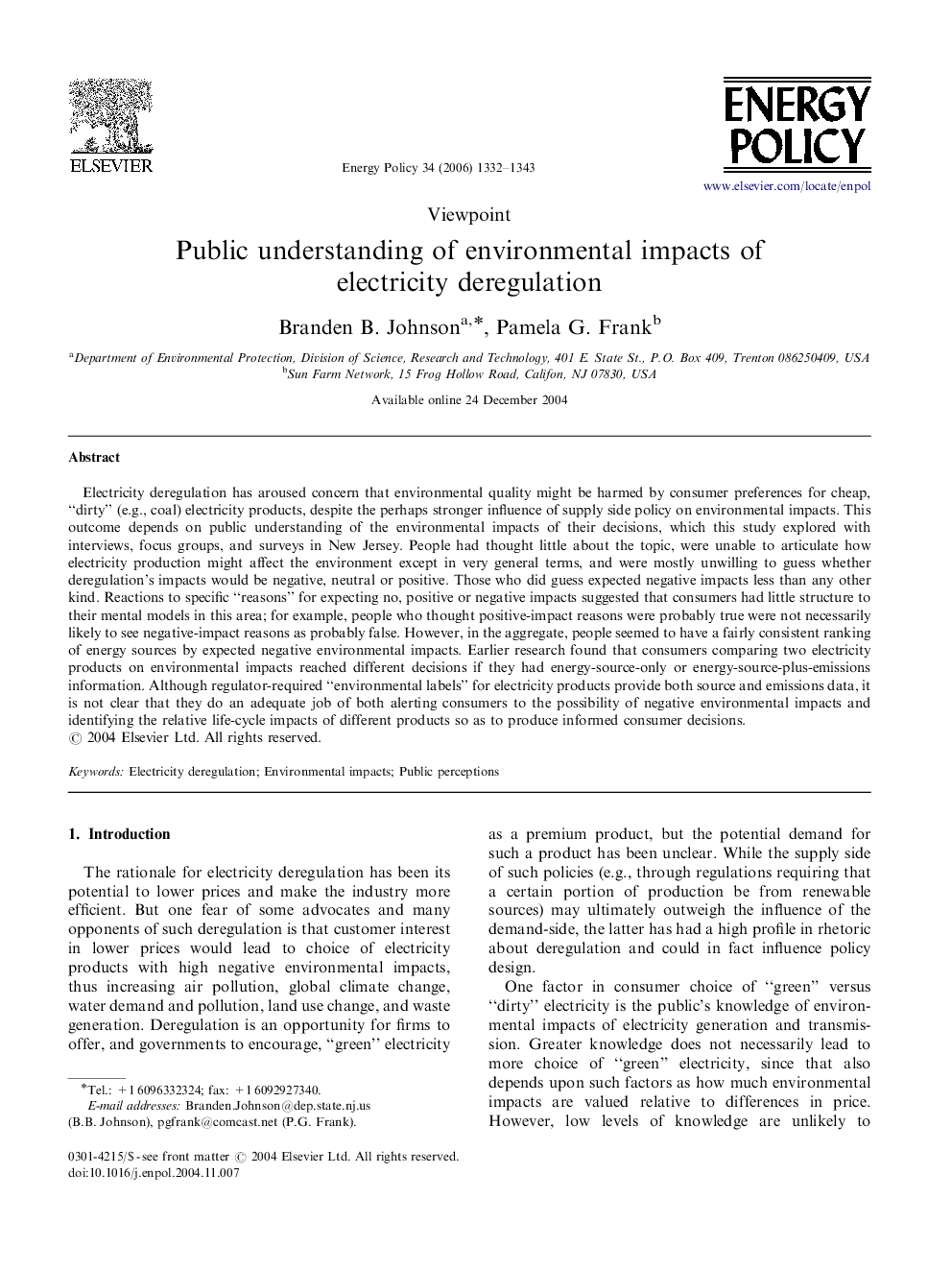| Article ID | Journal | Published Year | Pages | File Type |
|---|---|---|---|---|
| 997263 | Energy Policy | 2006 | 12 Pages |
Electricity deregulation has aroused concern that environmental quality might be harmed by consumer preferences for cheap, “dirty” (e.g., coal) electricity products, despite the perhaps stronger influence of supply side policy on environmental impacts. This outcome depends on public understanding of the environmental impacts of their decisions, which this study explored with interviews, focus groups, and surveys in New Jersey. People had thought little about the topic, were unable to articulate how electricity production might affect the environment except in very general terms, and were mostly unwilling to guess whether deregulation's impacts would be negative, neutral or positive. Those who did guess expected negative impacts less than any other kind. Reactions to specific “reasons” for expecting no, positive or negative impacts suggested that consumers had little structure to their mental models in this area; for example, people who thought positive-impact reasons were probably true were not necessarily likely to see negative-impact reasons as probably false. However, in the aggregate, people seemed to have a fairly consistent ranking of energy sources by expected negative environmental impacts. Earlier research found that consumers comparing two electricity products on environmental impacts reached different decisions if they had energy-source-only or energy-source-plus-emissions information. Although regulator-required “environmental labels” for electricity products provide both source and emissions data, it is not clear that they do an adequate job of both alerting consumers to the possibility of negative environmental impacts and identifying the relative life-cycle impacts of different products so as to produce informed consumer decisions.
